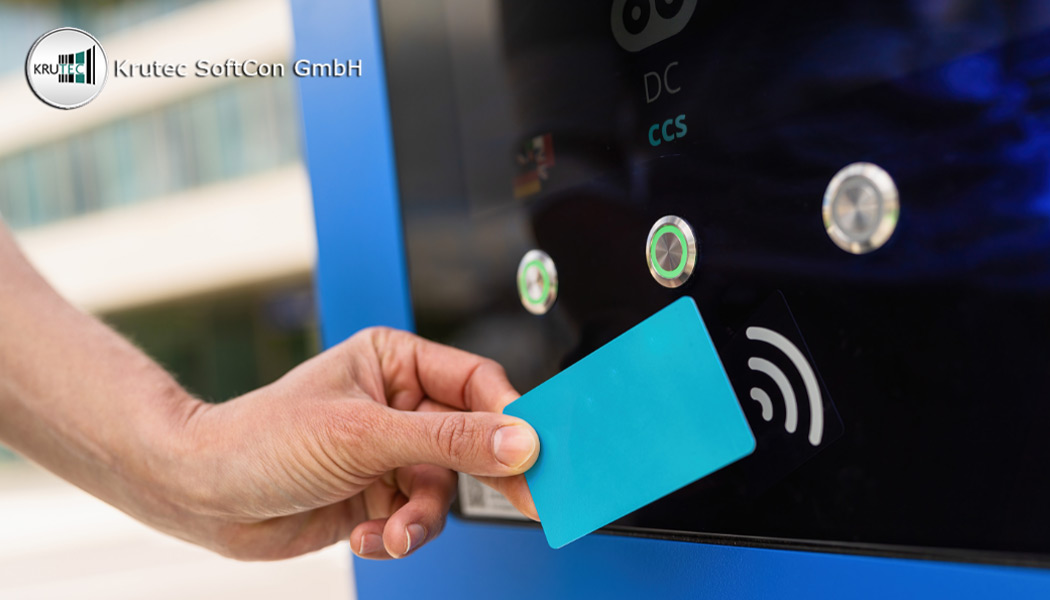
Efficient process optimization with RFID
RFID technology is indispensable for industry when it comes to optimizing processes and making them more efficient. With the help of RFID chips, companies can implement precise, contactless data collection that can be used for a wide range of applications from production control to time recording.
What is RFID and how do RFID chips work?
RFID (Radio Frequency Identification) enables wireless data exchange using a small chip that stores information and transmits it by radio to a reader or a special terminal. The RFID chips consist of a memory chip and an antenna and can transmit data in real time. This makes it easy to identify, monitor and efficiently manage objects, employees or stock - without direct visual contact. Companies benefit from RFID particularly when it comes to time recording, as employees can clock their working hours in and out quickly and easily at an RFID-enabled time recording terminal.
Advantages of RFID technology and RFID chips
The use of RFID chips offers a number of advantages in industry:
- Real-time tracking and precise time recording: RFID chips enable real-time tracking of goods and components along the production process. For working time recording, employees can efficiently document their working time via an RFID-based time recording terminal, reducing administrative tasks and optimizing the workflow.
- Increased efficiency through automation: RFID chips record data contactlessly and automatically, minimizing errors and speeding up production and logistics processes. In RFID-supported time recording, this means that all clock-in and clock-out data is available reliably and in real time.
- High data accuracy and security: The automatic recording of data via RFID chips ensures a high level of data accuracy. Time recording ensures that only authorized employees can record their times via their time recording terminal with RFID, which provides additional security.
- Robust and versatile application: RFID chips are suitable for demanding environments. Their data transmission works even under difficult conditions and across different frequency ranges. In time recording, RFID chips can be easily integrated into time recording terminals and offer a durable, reliable solution.
Areas of application for RFID in industry
- Production tracking and inventory control: RFID chips provide seamless traceability of components that are identified and monitored throughout the production process.
- Warehouse logistics: RFID chips enable rapid stock control, which prevents bottlenecks in the supply of materials.
- Time recording and access control: With a time recording terminal and RFID chip, employees can record their working hours and manage access rights. This reduces administrative work and increases security.
RFID for future-proof time recording and process optimization
RFID technology, especially through the use of RFID chips, enables companies like Krutec to make processes more efficient and optimize time recording. Thanks to the simple conversion of time and attendance terminals to RFID technology and the adaptability for various industries and applications, Krutec is an experienced partner at your side to utilize the advantages of this technology for a future-proof, high-performance industry.
